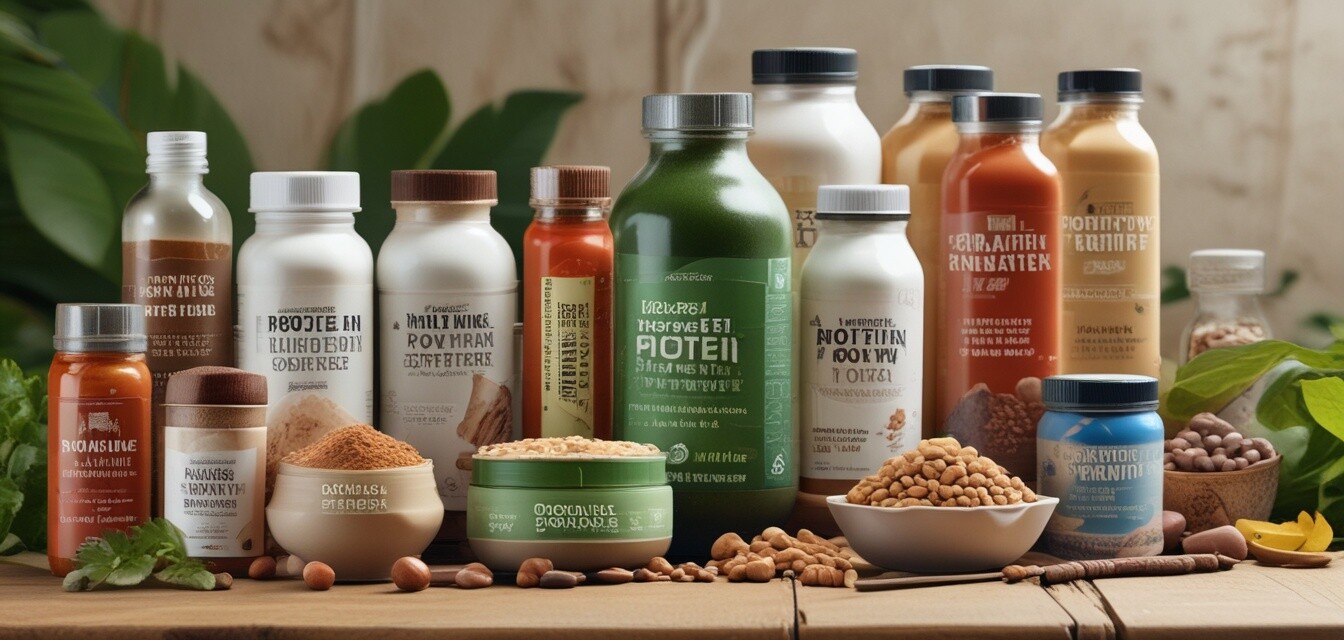
The Connection Between Health Trends and Protein Demand
In recent years, the health and wellness industry has witnessed a significant shift in consumer preferences, particularly concerning protein supplements. This article delves into how current health trends are influencing the demand for various protein supplements, from plant-based sources to whey protein. Understanding these connections can help consumers make informed choices in their dietary supplement selection.
Key Takeaways
- The rise of plant-based diets is boosting the demand for vegan protein supplements.
- Health trends focusing on muscle recovery and fitness are driving the interest in protein powders.
- Consumer preferences are shifting towards naturally sourced and sustainably produced protein options.
- Functional foods incorporating protein are becoming increasingly popular.
- Protein demand continues to rise due to the growing awareness of its importance in overall health.
Current Health Trends Affecting Protein Demand
Several health trends are converging to reshape how consumers approach protein intake, leading to a marked increase in the demand for various protein supplements. Below, we explore some of these influential trends:
- Plant-based diet movement: A growing number of individuals are adopting vegetarian or vegan diets, increasing the demand for vegan protein supplements.
- Fitness culture: With more people engaging in fitness activities, there's greater awareness of the role protein plays in muscle recovery and growth.
- Health consciousness: Individuals are increasingly seeking out high-quality, ethically sourced protein options.
- Sustainability focus: Consumers favor supplements that are both healthy and produced in environmentally friendly ways.
- Functional foods trend: There is a rising popularity for foods and supplements enriched with protein for added health benefits.
The Role of Protein in Diet
Protein is an essential macronutrient that plays a key role in bodily functions. It is crucial for:
- Muscle building and repair
- Hormonal balance
- Immune function
- Skin health and repair
- Energy levels and metabolism regulation
As these health trends progress, consumers are becoming more educated about the significance of protein in their diets. This awareness is driving the demand for diverse protein supplements. Below is a breakdown of popular protein sources alongside their unique attributes, helping consumers understand what options are available.
| Protein Source | Type | Key Features |
|---|---|---|
| Whey Protein | Animal-based | Fast absorption, rich in essential amino acids |
| Casein Protein | Animal-based | Slow digestion, good for overnight recovery |
| Pea Protein | Plant-based | High in iron, allergen-friendly |
| Hemp Protein | Plant-based | Rich in omega fatty acids, high fiber |
| Rice Protein | Plant-based | Hypoallergenic, good for digestion |
The Impact of Sustainability on Protein Choices
As more consumers align their purchasing behavior with their ethics, sustainability has become a priority. Many are looking for products that are not just healthy but also produced using sustainable practices. The demand for herbal supplements and sustainably sourced proteins are obtaining recognition as pivotal reference points for those interested in ecological health.
Market Trends and Consumer Preferences
The protein supplement market is expanding at a significant pace, driven by evolving consumer preferences. The combination of increased health awareness and environmental consciousness is creating an ideal landscape for brands focused on ethical production. Below, we summarize recent market trends:
- Increase in plant-based protein sales.
- Growing popularity of ready-to-drink protein beverages.
- Higher demand for organic and non-GMO certified products.
- Emerging interest in protein-rich snacks, such as protein bars.
- Interactive marketing focusing on transparency in sourcing.
Future Outlook on Protein Demand
The demand for protein supplements is poised to grow even further in the coming years. With a clear trend towards protein-rich diets and sustainable production practices, consumers can expect to see:
- Increased innovation in flavor and application of protein products.
- More brands emerging focused on clean label practices.
- Heightened interest in efficacy and scientific backing of supplements.
- Continued rise in protein varieties appealing to diverse dietary needs.
- Broader acceptance of alternative protein sources such as insects or laboratory-grown options.
Pros
- Supports muscle recovery and overall health.
- Wide variety of options suited for different dietary preferences.
- Many brands focus on sustainability and ethical sourcing.
Cons
- Some protein sources may not be suitable for everyone.
- Potential for added sugars and fillers in some products.
- Market may be saturated with competing brands and choices.
Conclusion
The connection between health trends and protein demand is undeniably strong. With shifts toward plant-based diets, increased fitness engagement, and sustainability focus, protein supplements are becoming more vital in the average consumer's diet. This evolution reflects not just changes in preferences but also a greater consciousness toward health and environmental sustainability. Keeping abreast of these trends can lead consumers towards better choices in their supplementation strategy, enhancing their overall well-being.
For more information on various dietary supplements, check out our guides on buying supplements and sustainability tips.